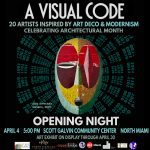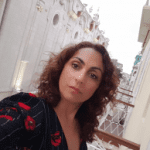Woosler Delisfort is an award winning documentary photographer and filmmaker. He was born, raised and resides in Little Haiti, a community formed by Haitian immigrants through the migration patterns that typically force immigrants to leave home and rebuild in an unknown place—largely political instability and violence fomented by the U.S. which then declares, “You are not welcome here.” And even in the face of a fervent unwelcoming, Miami’s Haitian community, my parents, created a home in Miami and painted it with their Haitian touch. It’s the turquoise and coral stained walls, the Haitian rhythms blaring from sidewalk speakers, the elder woman walking down the street with a basket of fresh grilled peanuts, pistach, balancing on her head, it’s the rara band that livens up Friday evenings through the streets of Little Haiti transporting you if but for a moment back home—even if you’ve never set foot on your parent’s island—it’s your home too.
Over the past 10 years I’ve devoted a large part of my work to capturing the energies driving the human experiences of Miami’s Haitian community in Little Haiti. That motivation feels even more urgent now as the neighborhood gentrifies and the sounds of Haitian rhythms from the sidewalks start to quiet. Storytelling for me is an instrumental medium for depicting truth, authenticity, and the exploration of self and the unexplored. Fundamentally, it is an opportunity to connect with the core principles that affect the collective human spirit.
That search for connectivity is what brought me to one of my recent projects, documenting afro-spiritual ceremonies and the many roles the priestess serves. In Haitian-Creole there is a saying that “fanm se poto mitan,” that women are the pillars of society. When you train the lens on religion it’s most often dominated by images of men. Is this ongoing series I focus on the power and centrality of women in afro-spiritual traditions of the African Diaspora, specifically the ceremonies of IFA, Vodou, Santeria and Obeah traditions found in Haiti, Cuba, Brazil, Jamaica, Benin and throughout the U.S. and ultimately wherever home is for the diaspora— because our spirituality is always there. Through my research and observations I am learning about how a priestess participates in raising spirits through chants, music, dance and drumming, while also serving as a leader that provides nurture, care and love. They are both earthly and spiritual mothers and healers. I started on this journey in 2015 and I am continuing to concentrate on the foundational elements of women in afro-spirituality, their rituals and traditions with the consent of all who participate and the consent of the ancestors and spirits who lead them.



